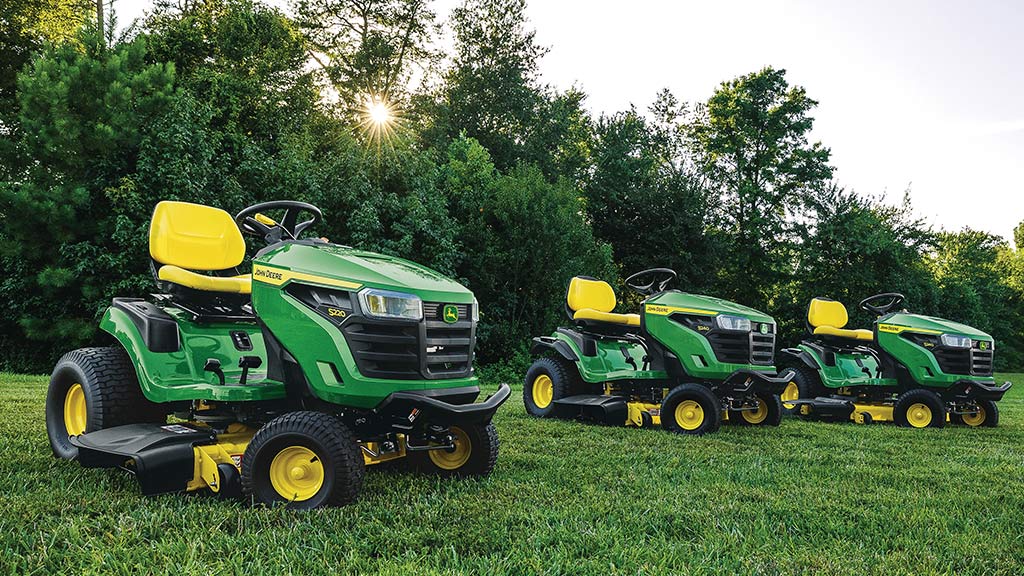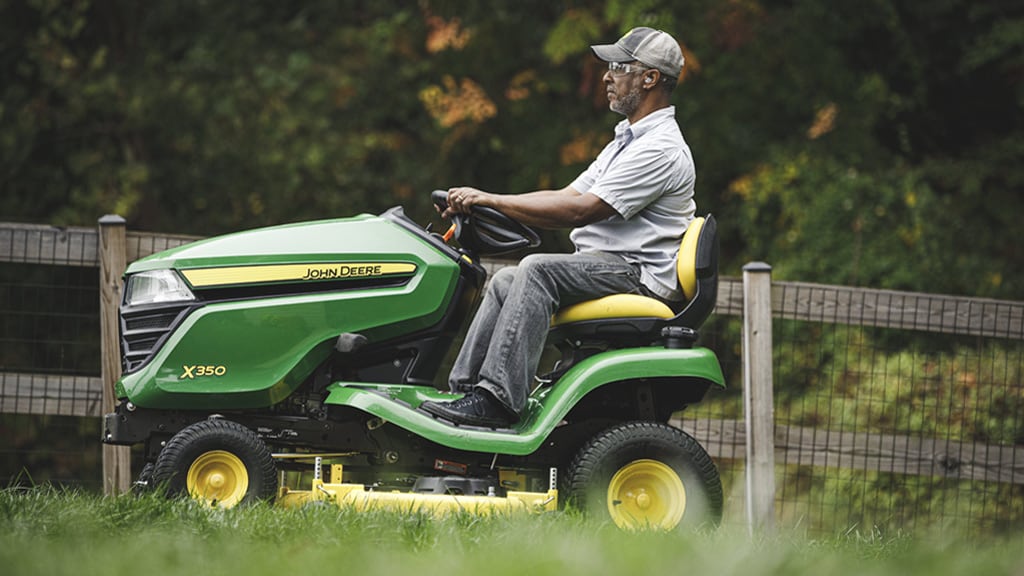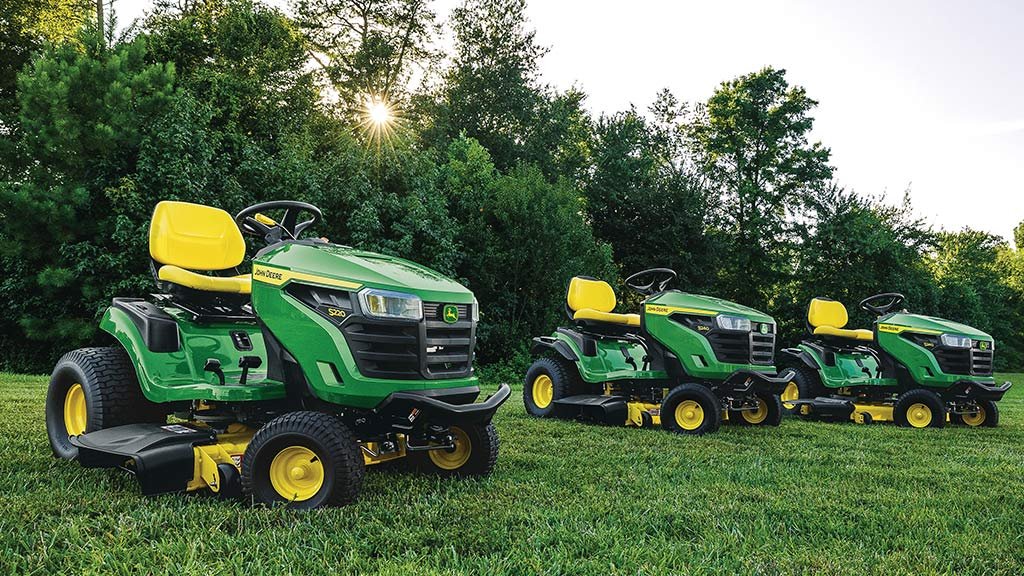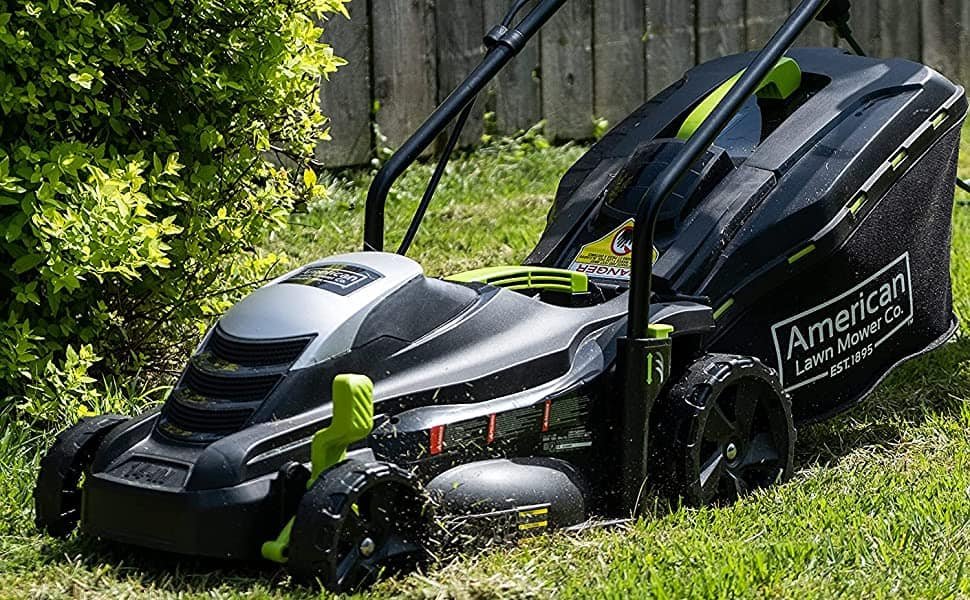
Source: John Deere
To help you choose the right lawn mower size for your lawn, especially riding lawn mowers, this blog has detailed information about how to measure your lawn mower, as well as the different size recommendations for riding lawn mowers.
By knowing about these sizes, you’ll be able to purchase the perfect lawn mower for your needs!
How to measure the size of your lawn mower
To find the size of your lawn mower, first measure the width and length of the cutting area on your property.
Next, subtract 6 inches from both measurements to get the dimensions in inches. (i.e., if your cutting area is 22 inches wide by 32 inches long, you would measure 20 inch x 30 inch.)
Compare these dimensions to the lawn mower sizing chart below to find the model that fits your needs!
Remember, always measure your lawn mower against a flat, level surface to ensure accuracy.
And if you have any questions about lawn mower size, don’t hesitate to reach out to our team!
How big should my lawn mower be?

Source: Lawn Mower Guru
Choosing the right lawn mower size is crucial for getting the best results. This is because a smaller lawn mower is better for smaller yards and a larger lawn mower is better for larger yards.
If you have a difficult time determining what size lawn mower would be best for your yard, speak with a professional.
Alternatively, you can measure your lawn using a yardstick or meter. Then, use the size of lawn mower recommended to get the best results.
Make sure to choose the right size lawn mower for your needs, and enjoy long-lasting lawn care with minimal effort.
Frequently Asked Questions

Source: John Deere
What riding lawn mower sizes do I need?
There is no one-size-fits-all answer when it comes to lawn mowers.
You need to take into account your lawn size, type of grass, and how often you plan on mowing.
There are some riding lawn mower recommendations which we have put together for you – by carefully reviewing these products one by one, perhaps you will find one that strikes your needs.
What is the average length of a riding lawn mower?
The average riding lawn mower is between 48 inches and 63 inches wide with the discharge chute in the upright position.
Add 8 to 15 inches to the width when factoring the discharge chute in the downright position.
How big of a yard do I need for a riding lawn mower?
Riding lawn mowers range in size from 30 inches in width to 60 inches (five feet), so as you can see, the width alone is a determining factor as to where you can use a riding mower.
Professionals recommend a riding mower for a yard that is more than three-quarters of an acre.
Certain riding lawn mowers could also be used on smaller yards.
Conclusion
By measuring the size of your lawn mower, you can ensure that you’re getting the best riding experience possible, as well as a well-cared lawn.
You’re also making most of the amount of money you pay for that mower.
This is the utmost importance of knowing the riding lawn mower sizes available for your needs.
Did these tips on learning more about lawn mower sizes help you? If so, let us know below what you think!
But if you want more information about riding lawn mower in our blog, you can read our article here: Riding Lawn Mowers – Complete Guide.



